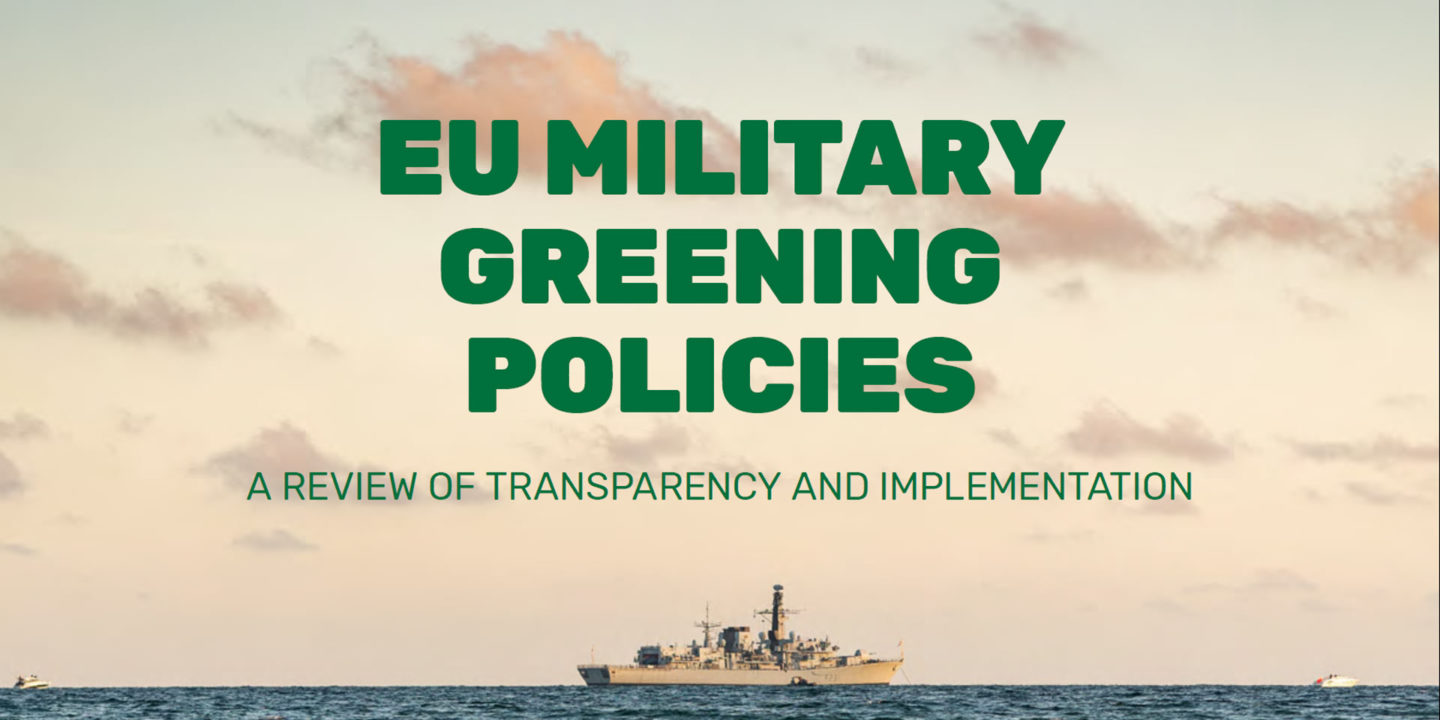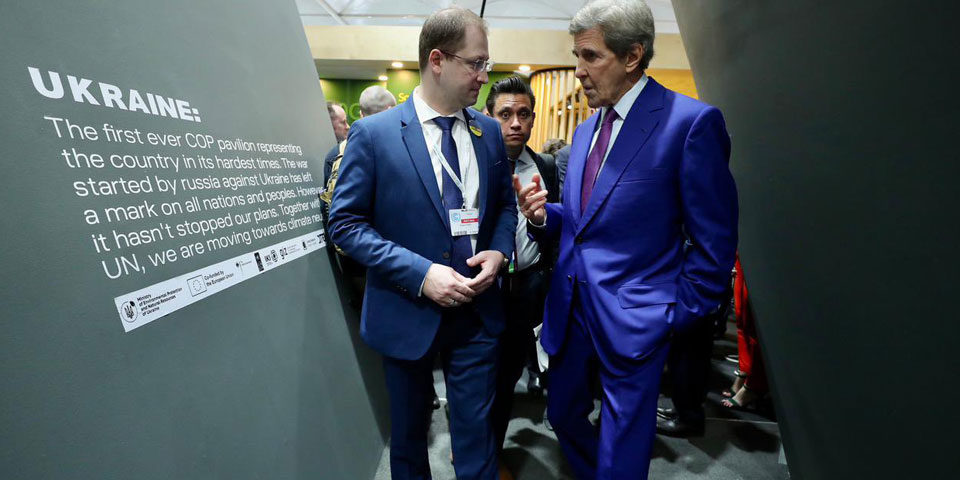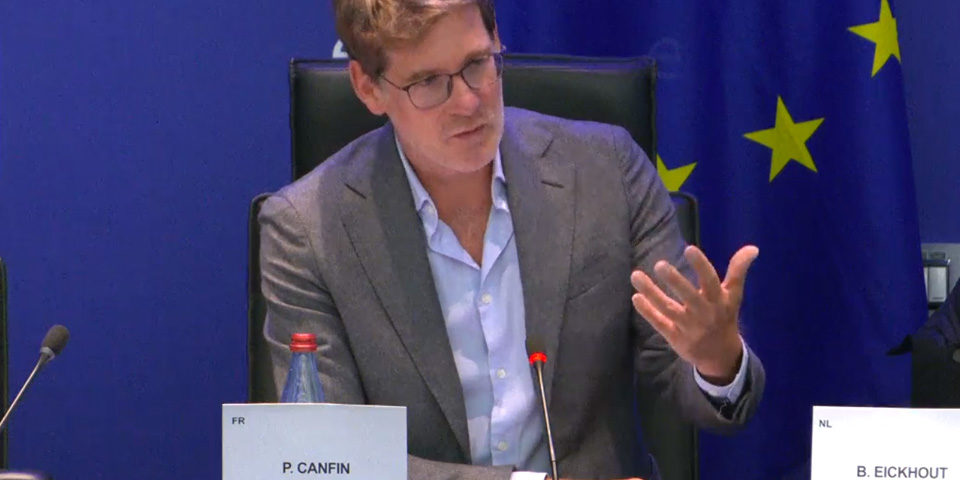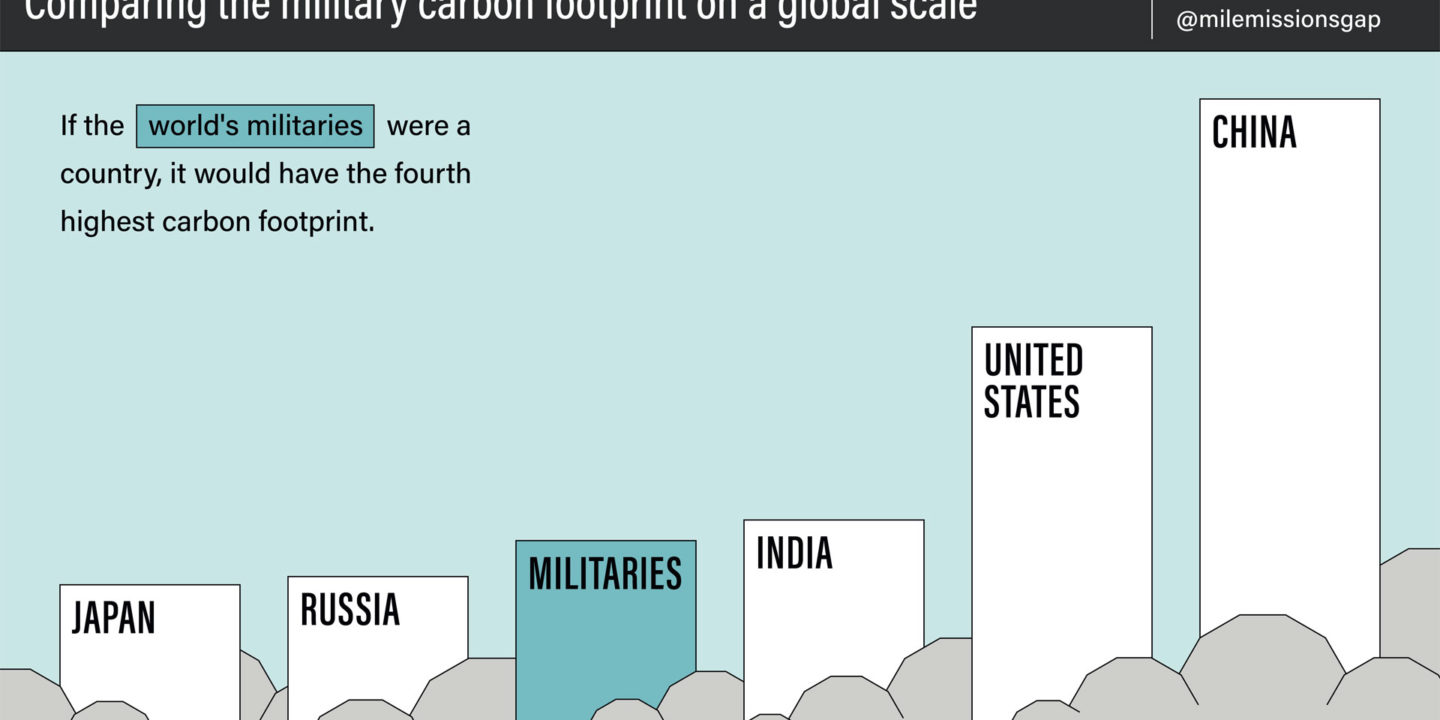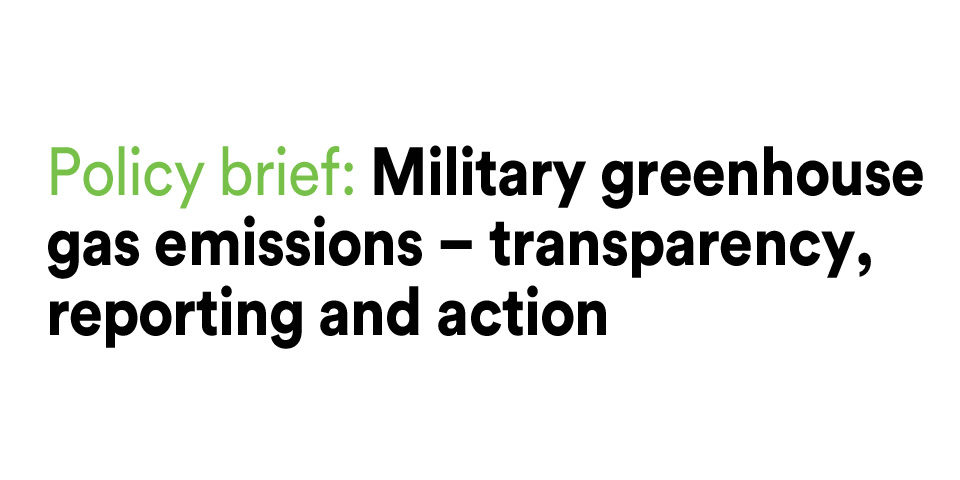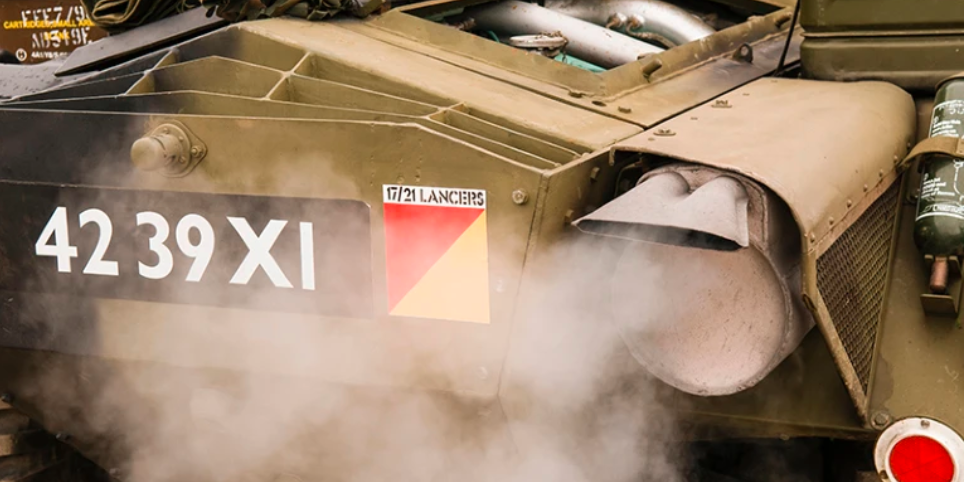Report: EU military greening policies: A review of transparency and implementation
Report mapping out EU military environmental policies and “greening” initiatives, including the extent to which environmental performance reporting is made publicly available. The review also draws on direct feedback from EU defence ministries on their environmental policies, as well as from other stakeholders with an interest in military environmental policy.

